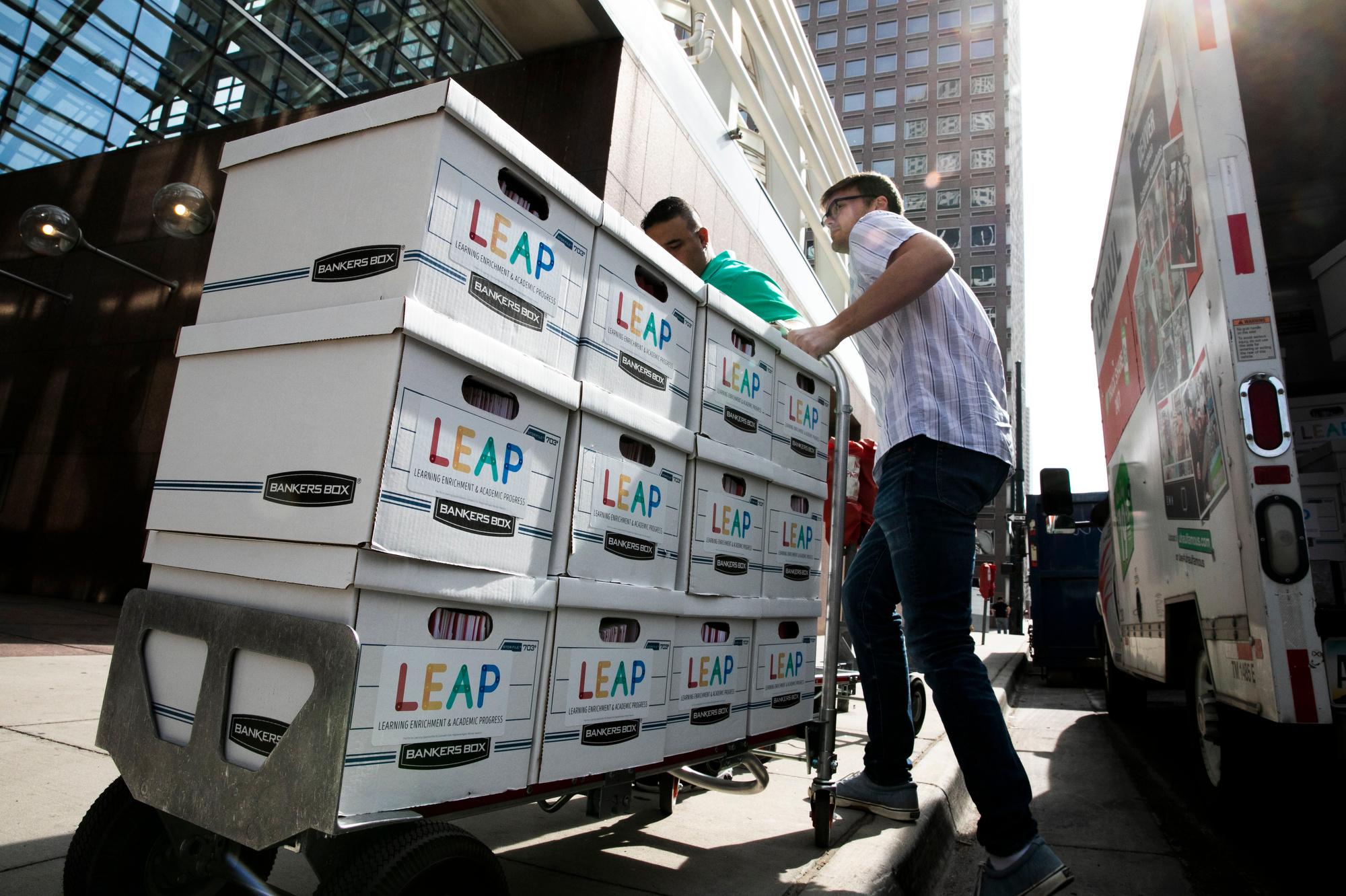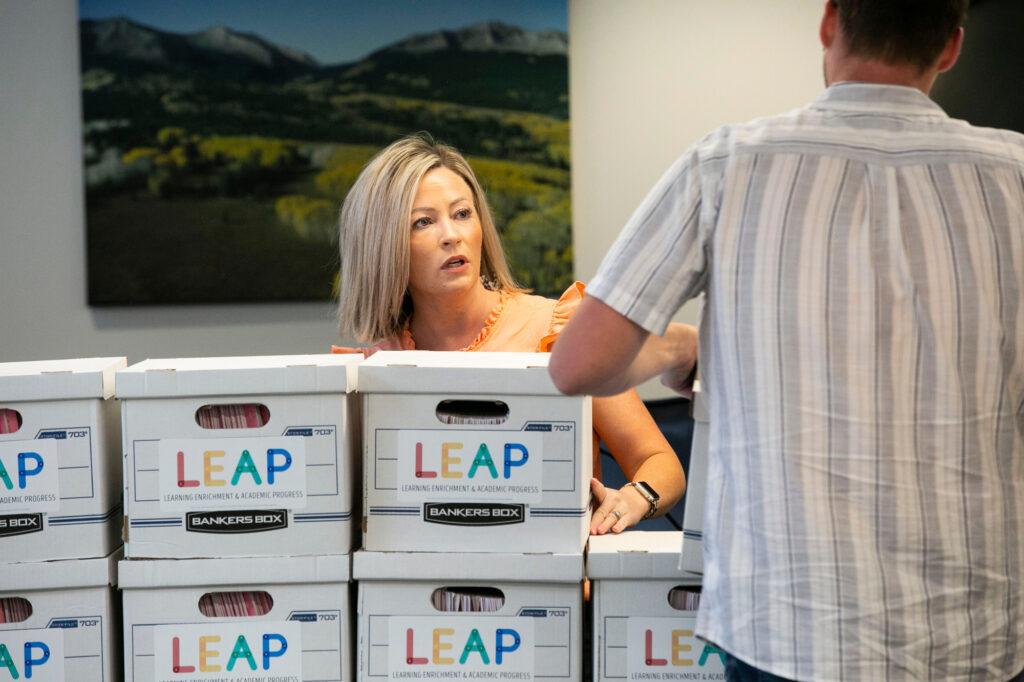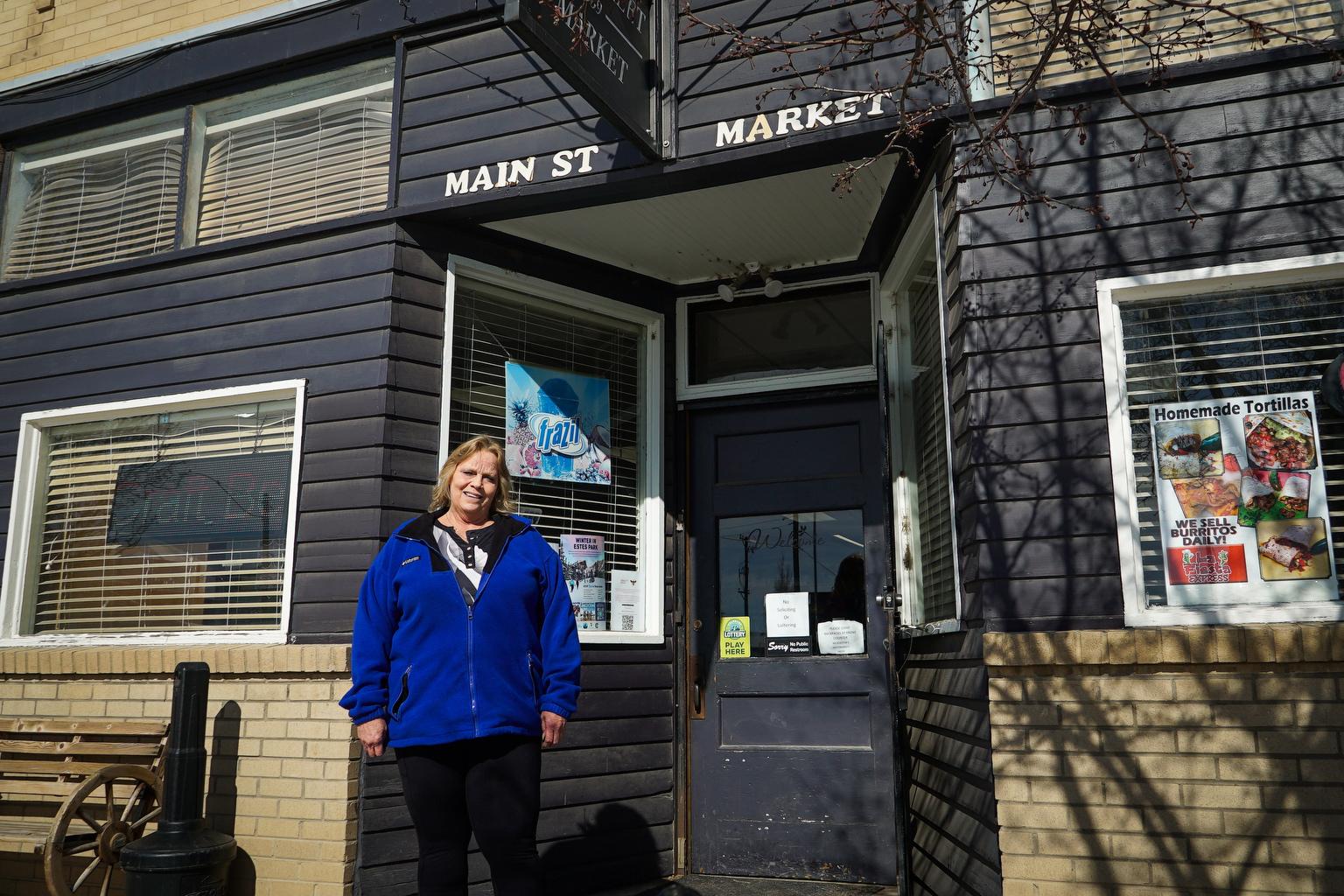
Colorado voters will be asked to raise taxes on cannabis to help the state’s children from low-income families recover from pandemic-related learning loss.
Backers of the Colorado Learning Enrichment and Academic Progress (LEAP) initiative delivered petitions with signatures to the Colorado Secretary of State’s office Friday in order to place the measure on the 2021 statewide ballot.
If passed, supporters say Colorado would be the first state in the country to build a long-term plan to prevent learning gaps from forming in the first place through after-school and summer programming.
The campaign needed just under 125,000 valid signatures to get on the ballot but supporters turned in just over 200,000, “which really demonstrates the broad support around the state for this issue,” said Monica Colbert Burton, a LEAP campaign representative.
But the proposal also has some high-profile groups questioning the fairness of the proposal, including the Colorado Education Association — the state’s biggest teachers union — which pulled its backing of the initiative a couple weeks ago. The CEA’s stance on the proposal is officially neutral after the union board voted on its support.
Early in the campaign, some raised concerns that providing direct funding to families amounted to “vouchers” in disguise, or that this proposal could pave the way for them. But backers say the language in the initiative clearly specifies that the funds can only pay for out-of-school learning opportunities.
“This can’t be for tuition,” said Colbert Burton. “This can’t pay for your actual day-to-day learning activities. It’s very specific to out-of-school learning.”
Opportunity gaps between low-income children and their peers, which fuel gaps in learning outcomes, go back decades. The pandemic amplified those gaps.

“The learning loss that we’ve seen during the pandemic is so much higher than we’ve ever seen before particularly for our low-income families and our students that don’t have access to the same resources,” Colbert Burton said.
Initiative 25 would provide financial aid for families to choose from a menu of approved out-of-school learning providers, including tutoring, extra support for students with special needs, enrichment activities, and career and technical education. Aid would be prioritized for students from low-income families.
If passed, the LEAP program would be funded by a 5 percentage point sales-tax increase on recreational marijuana. It would also repurpose a portion of state revenues derived from leases, rents, and royalties paid for activities on state lands. Backers say it would generate an estimated $150 million in funding each year.
Families could use the aid for a variety of programs that are shown to reinforce in-school learning. Several studies have validated the strength of tutoring and other out-of-school programs in helping close the achievement gap and “demonstrably improve academic outcomes."
"We want Colorado kids to be able to get the help they need and pursue out-of-school opportunities that help them grow as learners and citizens," said Heidi Ragsdale with an out-of-school nonprofit in Grand Junction, STEM is my Future.
The proposal is backed by a bipartisan team of educators, parents, nonprofit leaders, and state lawmakers.
"Providing every student in Colorado with out-of-school benefits which can be tailored to their specific needs should help them overcome academic setbacks exacerbated by COVID," said former Colorado Senate President Bill Cadman, R-Colorado Springs, in a press release.
The Secretary of State’s office will review the peition’s signatures to determine that at least 124,632 are valid before approving the initiative for placement on the ballot.









